Before she launched her successful organising business, Faith Roberson was a private chef, preparing food for people with dietary restrictions. Along the way, she discovered that the kitchen organisation included in her service was what her clients appreciated most. Then they started asking for more.
“Organically, one by one, people began asking me to organise other parts of their home,” says Roberson. She began taking on the task full-time, and also started studying life coaching, so she could offer her clients more than just decluttered drawers and clean closets.
(Want to pick up some healthier habits? Sign up for FREE to get healthy living tips, weight loss inspiration, slimming recipes and more delivered straight to your inbox!)
“Organising isn’t just about having a neat and tidy home, it’s about creating space for the things you truly want in life,” says Roberson. It’s a belief she holds both professionally and personally. “For me, it’s a practice of mindfulness, it’s an opportunity to evaluate where I’ve come from and where I want to go. It’s liberating and exciting and always leaves me with a great deal of hope.” Going through the decluttering journey is like opening a door, Roberson says. “It's an opportunity to rectify your past and move forward and make room for your future."
Here, Roberson shares five tools you can adopt to help clear out clutter for a better, healthier home life.
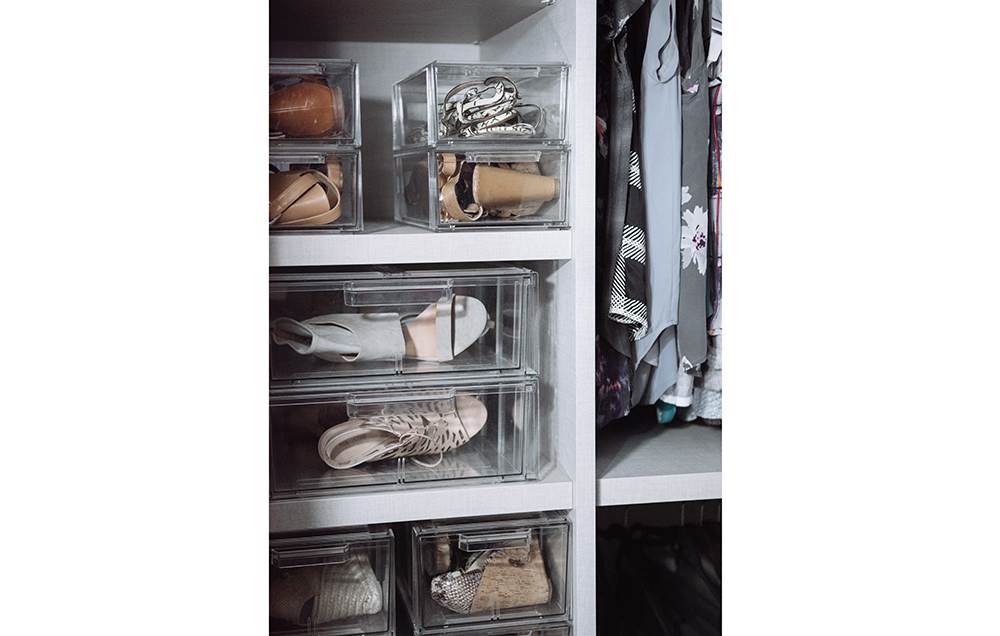
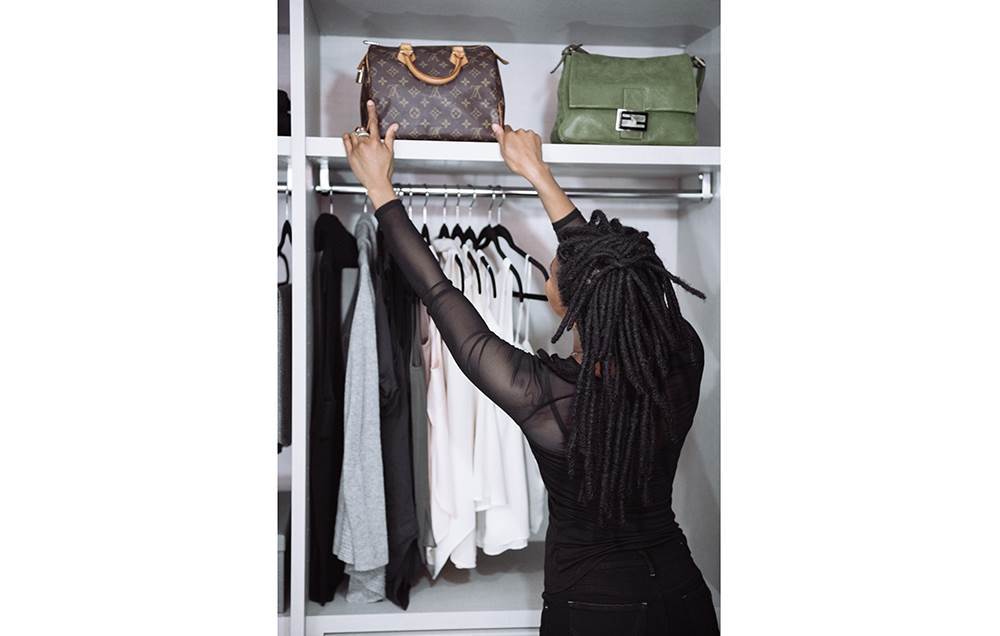
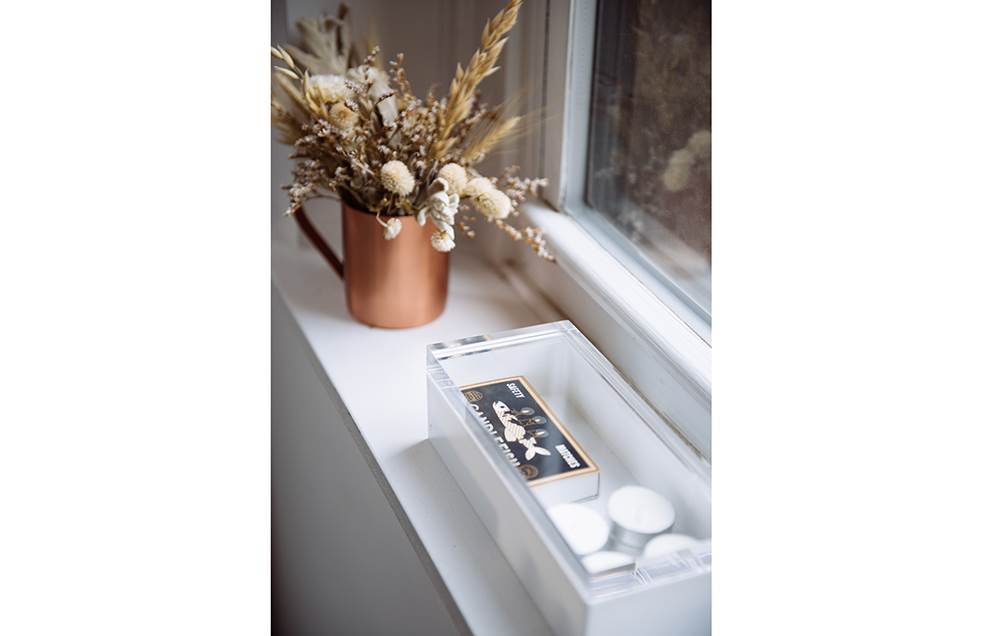
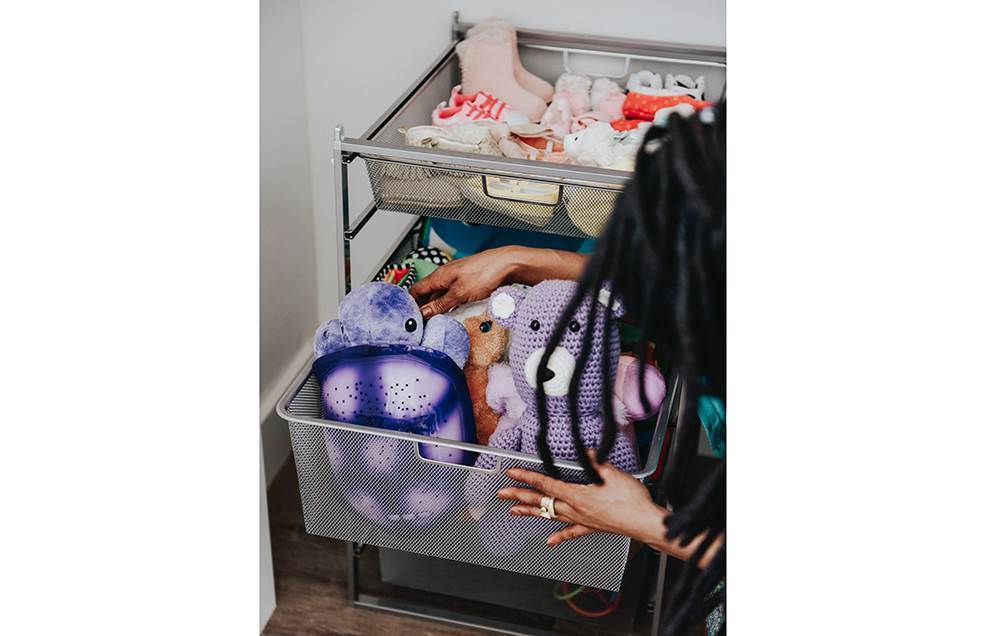
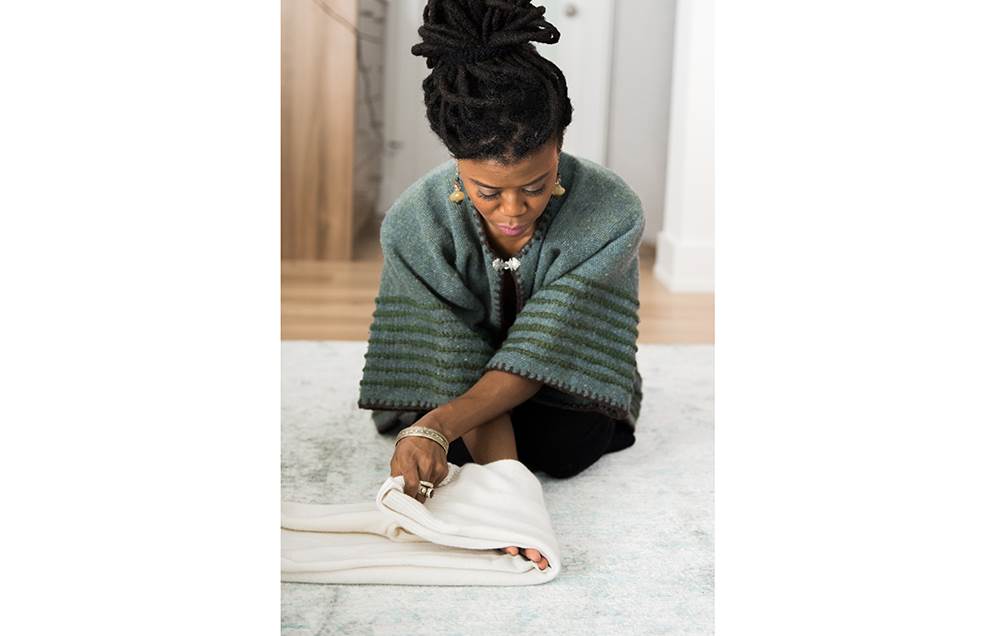
Keep only what you can care for.
If you want to have a tidy home, the first thing you have to do is look at all the things that have not been cared for and think about why that’s the case. If there’s a pile of clothes sitting in the corner that you've meant to get mended or altered, you have to handle (or get rid of) those things before bringing anything else into your home. Make a list of what’s been piling up from disuse or neglect, and then take stock: If it feels like it’s too much to maintain the things you have, you have too much.
Shop with intention.
Part of keeping your house in good form is to not buy impulsively. Sometimes I see people buying in bulk at Costco—huge packages of soft drink, or trash bags, or paper towels—and they don't even have room to store it. Be mindful of your purchases. That goes for clothes, too! It's important to create lists before you go shopping. Be conscious about what you bring in, where it will go, and how much of it you actually need.
If you're going to bring in something new, it needs to truly replace the old. Don’t buy new towels and just add them to your old towel stack. Cull your surplus. We live in a society where people want to have so much, but it's just not necessary. And when you have too much, you don't have space for the things you actually use and love.
Give spaces a purpose.
It’s OK to occupy all your space. You don’t need to have an empty shelf or drawer available—those just attract clutter. The key is to make sure your spaces are purposeful. For example, I keep candles and matchsticks on my window sill, and that's the only thing that goes on that window sill. Keeping them there sets the atmosphere in that space. I don't have to pull candles out of some back drawer or cabinet to enjoy candlelight. The sight of them on the sill reminds me to relax. Spaces can be cues like that. When you come in your house and there’s a hook for your keys, it reminds you to hang your keys there so you don’t lose them.
Designate a purpose for every space in your home. For example, a good cue for your kitchen table would be a bowl for apples and bananas, because that prompts you to enjoy healthy eating and communing around the table with family. If you throw mail in that bowl, that prompts you to do work. Keep a space true to the purpose that serves you best: It will help keep boundaries for you, and give you a more harmonious home.
Meet your household at its level.
If you have a partner or kids who live with you, staying organised can be a challenge because everyone in the house may not be on the same page, or stick to the systems that you put in place. To be successful, you have to mindful of everyone else's patterns. The best way to do that is to spend a week—or even just two days—watching the people who live with you. What are the things they do when they come in the door? Do they drop their bag on the kitchen table? Do they race in and go straight into their bedroom? Do they stack mail by the door? Taking note of those things is helpful when you're trying to understand the flow of your home, because then you can organise in a way that combats habits that contribute to clutter.
For example, if your kids come in the door and kick their shoes off right away, it might be helpful to have a basket beside the door for them to kick them into. Or if your partner tends to lose their car keys, look at where they’re setting them down. Maybe a key hook by the door isn’t the best place. Maybe it needs to go in your bedroom. You can start to bring order to the natural patterns that are already in place by providing organisational tools that support those patterns.
Train yourself to fold.
Don’t underestimate the art of folding. It’s worth your time to watch a tutorial on YouTube, or get a folding board to help you do it right, and here’s why: Folding makes you more efficient in the long run and can improve your whole day. You typically start and end your day around your clothes. Cluttered, unfolded clothes can make you late, which can bring anxiety, and then you feel like you're underperforming. It affects you mentally.
I go into people's homes, and they say "I don't have any space, I have too many clothes!" But it’s really just that their clothes aren’t folded. They're stuffed into the dresser. Or their drawers are broken, because they've tried to shove them closed around the mound of clothes. When you fold clothes and linens before you put them away, not only can you can see everything, you end up being able to fit more in the same space. It makes you more productive and keeps you in a better state of mind.









